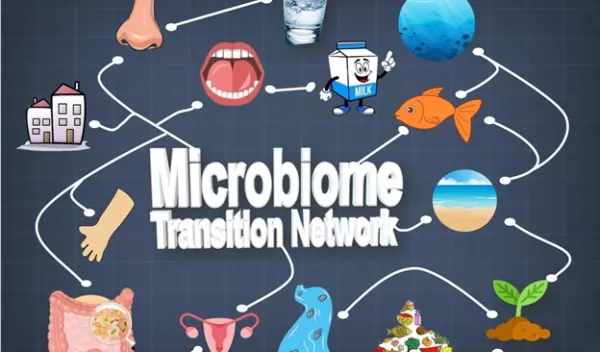
Seven degrees from one trillion species of microbes
The Earth contains an estimated one trillion species of microbes — with 99.999% of them remaining undiscovered. A human can house 100 trillion microbes, creating a microbiome that serves an ecosystem of microbes.
Microbes connect and transform in myriad ways, creating and combining and separating microbiomes anew. How can scientists begin to parse out how microbiomes differ, how they are similar, how they evolved and how they may change in the future?
U.S. National Science Foundation-funded researchers may have an answer. They published a scale-free, fully connected search-based network to explore the connectedness of microbiomes across the world in mSystems.
To better understand how the vast number of varying microbe species evolved, the scientists used a Microbiome Search Engine to build a global microbiome transition network, or MTN, that connects, based on their composition similarities, 177,022 microbiomes from 20 diverse ecosystems that include the plethora of ecological niches in the human body and the environment.
The global MTN is scale-free, which is similar to the internet or social networks among human individuals. In these kinds of networks, most nodes are each connected to a small number of other nodes, yet a small portion of nodes are connected to many others.
Information from the global MTN can provide important information, such as the evolution or interaction of microbiomes. For example, the roadmap revealed that the oceans are the most likely microbiomes to interact with beach sands and marine fishes, while soil and fresh water are the gateways of microbial exchange between the environment and plants or humans.
With rapid changes in climate, numerous microbiomes are disappearing and emerging every day. Constructing and updating the global MTN would be impossible without powerful search engines and standardized databases for microbiomes, such as those in the Microbiome Search Engine.
Correction (April 24, 2024): This article originally stated "the Earth contains about one trillion species of microbes -- only about one-tenth of which have been identified." This sentence has been updated to reflect the percentage of microbial species scientists believe remain undiscovered.
